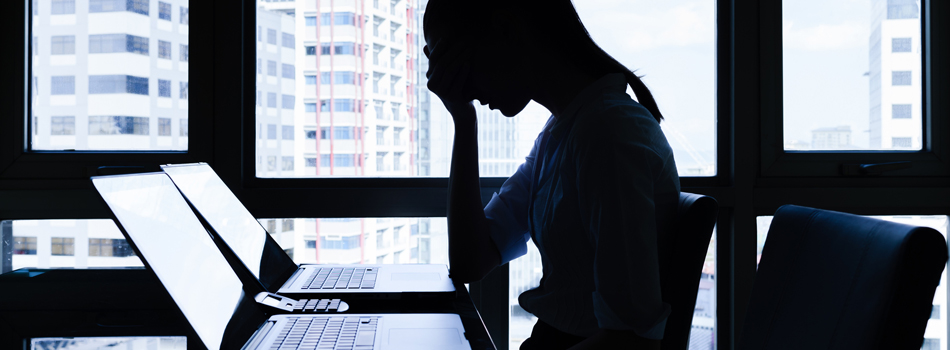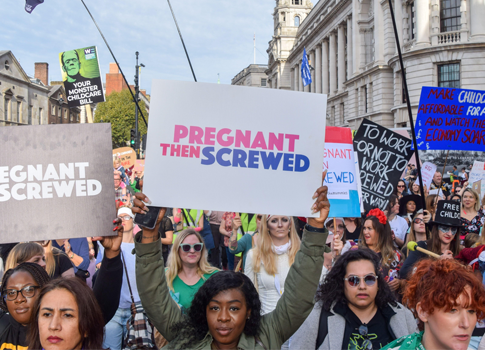At Total Media we view people’s mental health as a top priority, and over many years we have worked hard to ensure we are supporting teams’ mental wellbeing. Over time, led by individuals within the agency, this support was created by the presence of a handful of mental health first aiders (MHFA’s), who could help staff through difficulties they might be dealing with, whether in their personal or professional life. In reality with so much time spent at work, the two very much intertwine and worries in one area can very much affect the other.
Our first MHFAs qualified in early 2019, and we now have since a total of 4 MHFAs who are able to offer an ear or chat over a coffee, as and when required. Further to being there for colleagues when required, the training course helps each of us to proactively be aware of telltale signs that people’s wellbeing and mental health may not be 100%. The MHFA team is made up of different individuals from different teams to offer, as best as possible, alternative outlooks or points of view to a particular individual, so they feel they can choose who they may like to approach if needed.
A day or two in the life, training to be a MHFA
Last month, in a sunny Dartford car park, Ant & I met up and headed into the Dartford Adult Education Centre to begin the first day of our Mental Health First Aid course to be trained up as MHFAs by our MHFA accredited teacher, Patricia Dillon-Russel.
Day 1 of the training was split into two parts: the first being an introduction into ‘What is Mental Health?’ and why there is a growing need for Mental Health First Aiders in the workplace. With NABS reporting eye-opening statistics such as 64% of people have considered leaving the advertising industry due to their wellbeing being affected by their work, and with us all now working remotely, for the time being, it is needless to say that the support provided by MHFAs has never been so vital.
The session went on to explore some of the most commonly experienced mental health problems in the workplace; how to recognise the signs of someone suffering from anxiety or depression at work and how to tactfully approach that person in the right way. These signs could be anything from a drastic change in someone’s personality and interests, to someone’s eating habits noticeably changing or a co-worker appearing overly tired for a prolonged period. We also looked at more urgent cases, for example what to do if somebody mentioned having suicidal thoughts and how best to help someone experiencing a panic attack at work. The role of the Mental Health First Aider is clear, we are not advisors but are simply there to listen, pass on information and signpost the right support, so we also did lots of exercises on active listening and how to encourage people to open up.
Due to the government advice surrounding COVID-19, our second and final day of learning took place remotely and Ant & I attended a day-long Zoom training session. Despite a couple of technical hitches, the day flowed smoothly and we were still able to take part in interactive learning using the break-out room function. We continued to delve further into the different mental health conditions that people could be struggling with and how to approach, assist and support them at work. We looked at a variety of poor mental health conditions, ranging from eating disorders to Schizophrenia and although we cannot attempt to help this person tackle the disorder, we can be a good first point of call in guiding that person to receive the support they need. We also touched upon potentially dangerous coping mechanisms that people often use to help manage their poor mental health, such as substance misuse and self-harm, and how we can spot these signs in the workplace.
Ant and I still came away with lots of useful tips for supporting our co-workers and knowledge of how to spot the signs that someone may be struggling with. I think for me, one of the biggest successes was developing my listening skills and knowing when to encourage people to chat but also when it is okay to simply listen and empathise. This will be helpful in the coming months when people are likely to be suffering more from the added pressures of being isolated, and will likely need someone to listen.
How MHFAs are helping to look after our people at Total Media
One crucial part of the role for our MHFA team is to host, twice a year, a training session for all employees at manager level and above, this includes all levels up to and including our Chairman. Although this is compulsory, it doesn’t need to be as all team members are pleased to attend and take away so much from the session. Beyond this, tips and other helpful advice are shared frequently via internal communications as well as arranging and organising off-site seminars and sessions hosted by third parties, such as NABS who do such great work for the media industry. Our MFHAs being present in the office is definitely a great help, as people are aware of who the team are and can approach them personally or over online comms, depending on what is preferable.
For now and for some time yet, we’re aware that the normal working day environment has changed almost completely, with the laptop being the one familiar item in your now ‘normal’ working day with zero physical contact and availability of friends and colleagues.
With this in mind we have looked to revise and adapt support offered to the team. Currently an individual’s stresses and strains could be heightened, whether relating to household income or childcare issues, or just having to learn how to teach overnight AND do your day job! With examples like this in mind, it is more important than ever that we can offer support, even though we aren’t in the same physical space. We have tried to limit any virtual barriers being in place and we can be contacted whenever is needed, over a text, email or call/video call. To help our colleagues at this time and to ensure the MHFAs are front of mind, we have set a particular time each day where there are 30 minutes cleared in our diaries and are available to talk.
We’re very proud to now be qualified Mental Health First Aiders and to join the MHFA Team at Total Media. We hope that we can help provide support to our colleagues and friends who may be struggling, particularly so in this challenging time, and we are always free to lend an ear to anyone who would like to chat.






